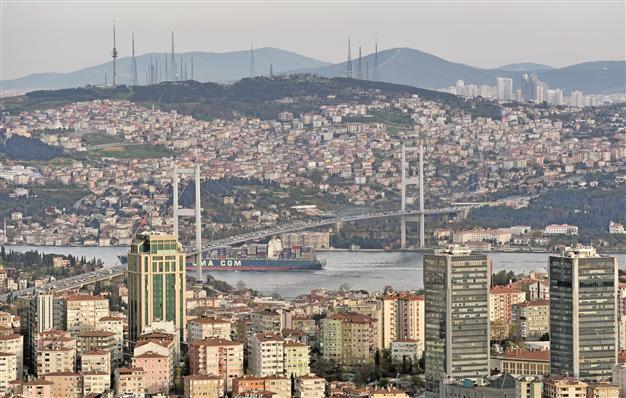S&P’s outlook cut for Turkey to have ‘limited’ impact on market
ISTANBUL - Reuters

Turkey’s credit outlook has been cut by S&P, the only one of the three main credit rating companies that doesn’t classify Turkish debt as investment grade due to ‘risks of a hard economic landing’ and ‘less predictablity.’
Standards & Poor’s decision to cut its outlook on Turkey’s ratings to negative from stable is expected to have a limited impact on Turkish markets, analysts say.Standard & Poor’s revised the economic outlook of the country on the late hours of Feb. 7, saying that it saw risks of a hard economic landing and that the country’s policy environment was becoming less predictable.
A corruption investigation shaking the Justice and Development Party (AKP) government along with sharp falls in the lira currency have raised concerns about stability in the run-up to elections this year.
“Turkey appears to have suffered an unanticipated erosion of institutional checks and balances and governance standards,” Standard & Poor’s said in a statement, citing in particular concerns about the independence of the Central Bank.
The credit ratings agency cut its outlook to negative on its unsolicited “BB+” long-term foreign currency and “BBB” long-term local currency ratings.
While all the eyes will be on the response of the stock and foreign exchange markets on the first day of the week, analysts argue that the decision will not cause major movements, as Standard & Poor’s is already known to be skeptical of the Turkish economy.
The S&P had lifted Turkey’s sovereign credit rating to BB-plus from BB in March 2013, being the only agency that didn’t upgrade Turkey to investment grade.
Other decisions ‘crucial’
S&P’s fellow ratings agencies Fitch and Moody’s have BBB- and Baa3 ratings on Turkey, respectively, both with stable outlooks.
Moody’s and Fitch, both seeing the country’s credit rating at investment-grade, admitted the economic vulnerabilities emerge from recent political and judicial developments, but argued these risks were already embedded in the country’s rating.
Burgan Investment Chief Economist Haluk Bürümekçi said S&P’s move indicated that the agency would revise the country’s credit rating outlook as well, but added, “its impact on the market will be limited compared to the case other two rating agencies took a similar decision.”
“Based on the fundamental story that has played out over the past few weeks the cut is justified. But I can’t help thinking that this is a backward-looking move,” said Benoit Anne, emerging market strategist at Societe Generale.
“The Central Bank has been sending the right signal to the market that it takes financial stability risks
quite seriously. Now we still need to get some kind of solution on the political front, but that is going to take a lot of time.”
The Central Bank ramped up interest rates last month to halt a slide in the lira despite opposition from the Prime Minister Recep Tayyip Erdoğan, a vocal opponent of higher borrowing costs who has railed against what he termed an “interest rate lobby” of speculators seeking to stifle growth and undermine the economy.
















